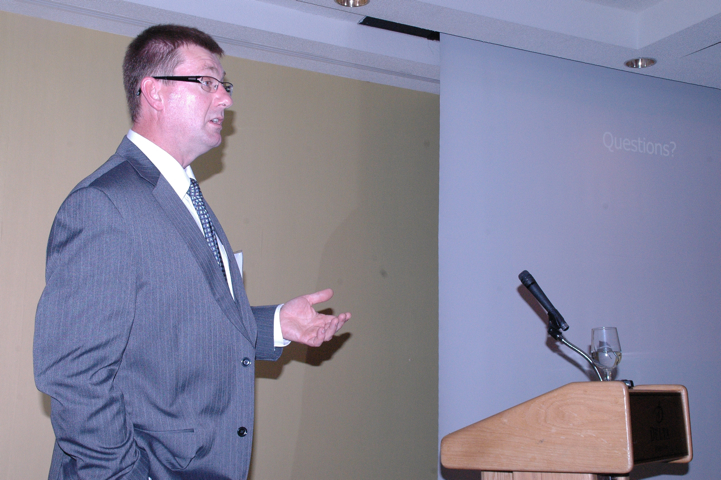
Features
Blogs
Editor's Blog
Editor’s blog
May 20, 2011
It’s been a wild week for fire news. It’s tough for us here in rain-soaked southwestern Ontario to comprehend the devastation in Slave Lake, Alta., and the challenges of rebuilding and dealing with thousands of displaced families.
May 20, 2011
By
Laura King
When Kelowna, B.C., burned in 2003, fingers were pointed but lessons were learned, and when wildfire scorched that picturesque community again in 2009, the firefighting strategy – and everything connected to it, from communication to co-ordination of firefighters brought in from elsewhere – had improved.
The Globe and Mail reported this week that the Alberta Emergency Management Agency failed to call an evacuation order for Slave Lake. The next day, the AEMA said it had, in fact, done so.
So, there’s finger pointing and frustration and there will be lessons learned. Small consolation at this point.
–
I’m a Bluenoser. I grew up in Nova Scotia and still spend as much of every summer there as I can. So I was more than dismayed to read this week that Nova Scotia’s auditor general has discovered gaping holes in the performance and record keeping of the Office of the Fire Marshal. Buildings aren’t being inspected and the records for those that have been inspected are sorely lacking.
Here’s the worst part, from the Globe’s report: “The department itself doesn’t know what buildings are supposed to be inspected,” the auditor told reporters.
“It doesn’t know how often they should be inspected. It doesn’t know if they have been or not. If buildings are inspected, reports aren’t necessarily put into the system to tell you that. If they are inspected and deficiencies are found, well, what kind of letters [are] issued to people about that? If you require that they correct the deficiencies, is anyone following up see that they are in fact corrected? None of this information is known.”
In a decade when Canadian fire-service leaders are pushing fire prevention and public education as the answers to lack of funding for suppression, equipment and staffing, this news is appalling.
For years, the Fire Services Association of Nova Scotia has been lobbying for a government ministry to be responsible for the fire service. Emergency measures in Nova Scotia falls under the Department of Justice. The Office of the Fire Marshal is part of the Department of Labour and Advanced Education. But there’s no one responsible for fire-service issues.
I suppose the problem in the OFM might have been obvious. The web page for the Office of the Fire Marshal in Nova Scotia lists two annual reports – from 1998 and 1999!
But here’s the most interesting paragraph on the OFM web page: “The fire marshal and his staff continue to try to overcome the disastrous results of human carelessness, neglect, and ignorance.”
Ironic.
–
Speaking of public education and fire prevention, I was invited last evening to a dinner hosted by the Canadian Fire Safety Association (CFSA) in Markham, Ont., at which Ontario Fire Marshal Ted Wieclawek spoke.
Wieclawek is in an interesting position. He inherited from former fire marshal Pat Burke a risk-assessment strategy for municipalities that some stakeholders – including the Ontario Association of Fire Chiefs – don’t yet fully support.
Wieclawek spoke openly and passionately to CFSA members about his desire to bridge those gaps. He admitted that the OFM has made mistakes by failing to thoroughly consult with stakeholders before rolling out policies.
“Until I deal with that, that document will never come to fruition,” he said of the risk-assessment strategy. “It will not become policy until they [stakeholders] feel they have ownership over it.”
 |
|
| Ontario Fire Marshal Ted Wieclawek speaks to the Canadian Fire Safety Association Thursday night in Markham, Ont., focusing on the three lines of defence: public education; fire-safety inspections and enforcement, and emergency response. Photo by Laura King
|
Wieclawek admitted he has done considerable soul searching – since becoming fire marshal in late January – about the OFM’s relationships with its stakeholders.
“We might have been a little better off if we involved those organizations from the ground up,” he said. “Part of me wishes I had inherited a department that was more stabilized,” he added, referring to the necessity to focus on fire prevention and education because of lack of funding for suppression resources.
“We cannot continue to rely on traditional way of dealing with fire protection.”
Although fire fatalities in Ontario were at a record low of 82 last year, Wieclawek noted that 40 per cent of those fatalities were in homes or other structures that did not have working smoke detectors. Clearly, he said, despite 14 years of legislation requiring smoke detectors, the current public-education strategy needs work.
We have a question and answer feature with Wieclawek in the June issue of Fire Fighting in Canada, in which he discusses the risk-assessment document, mandatory sprinklers, fire-code enforcement and the three lines of defence: public education; fire safety inspections and enforcement; and emergency response. Remember those words. We’re going to hear them often.
–
Lastly, for a long weekend that traditionally spawns fireworks mishaps and boating accidents in rural areas staffed by volunteer fire departments, if you haven’t seen Cee Lo Green’s tribute to volunteer firefighters – we posted it on our website a couple of weeks ago but it’s still making the rounds on Facebook – take a few minutes and listen to the lyrics.
Happy Victoria Day!
Print this page